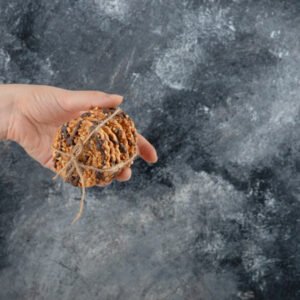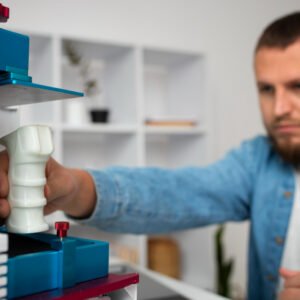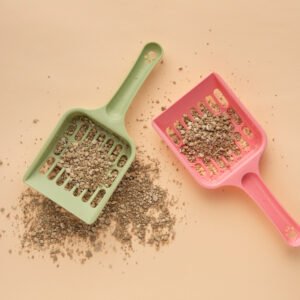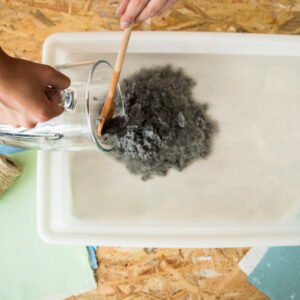Introduction to Bentonite Clay for Pets
Bentonite clay, a natural mineral derived from volcanic ash, has gained traction as a holistic remedy for both humans and animals. Renowned for its detoxifying, absorbent, and nutrient-rich properties, bentonite clay is increasingly being explored by pet owners for its potential to enhance animal health.
At CMS Industries, India’s premier bentonite manufacturer and exporter, we produce high-purity, food-grade bentonite that adheres to rigorous safety standards, making it a viable option for pet care. With the global pet care market expected to surpass $300 billion by 2027, natural solutions like bentonite are becoming a cornerstone of holistic pet wellness.
This blog addresses the critical question, “Is bentonite clay safe for pets?”, delving into its benefits, safety considerations, and proper usage for dogs, cats, and other animals. CMS Industries’ premium bentonite offers a safe, eco-friendly approach to supporting your pet’s health. Let’s explore the science, applications, and best practices to ensure your furry friends thrive with bentonite clay.
What is Bentonite Clay?
Bentonite clay is a fine, powdery substance primarily composed of montmorillonite, formed from volcanic ash weathered over millennia. It is available in two primary forms: sodium bentonite, which swells significantly when wet, and calcium bentonite, valued for its ability to bind nutrients. Food-grade bentonite, safe for internal consumption, undergoes meticulous processing to eliminate impurities, ensuring it is suitable for both humans and animals.
At CMS Industries, we source bentonite from our extensive mines in Gujarat, India, strategically located near Mundra and Kandla ports for global distribution. Our ISO 9001:2015-certified processes guarantee purity and consistency, making our food-grade bentonite a trusted choice for pet owners seeking natural wellness solutions.
Is Bentonite Clay Safe for Pets?
Yes, bentonite clay can be safe for pets when used correctly, with food-grade quality, and under veterinary supervision. CMS Industries’ food-grade bentonite is non-toxic, free from harmful contaminants, and designed for safe internal and external use in animals. Its safety, however, depends on several factors, including dosage, the pet’s species, health status, and the clay’s purity.
Bentonite’s unique properties—high absorbency, toxin-binding capacity, and mineral content—make it a versatile tool for addressing common pet health issues like digestive upset, skin irritations, and toxin exposure. However, improper use can lead to risks such as constipation or nutrient depletion. Below, we outline the benefits, safety considerations, and best practices for using bentonite clay with pets to ensure optimal outcomes.
Benefits of Bentonite Clay for Pets
When administered correctly, bentonite clay offers a range of benefits for pets, supporting their health in natural, holistic ways. Here are five key advantages:
1.Detoxifies the Body
Bentonite clay’s negative ionic charge attracts and binds positively charged toxins, heavy metals, and harmful bacteria in a pet’s digestive tract, aiding their elimination. This is particularly beneficial for pets exposed to environmental pollutants, pesticides, or contaminated food sources.
How It Helps: CMS Industries’ food-grade bentonite supports safe detoxification, reducing toxin buildup and promoting overall vitality in dogs and cats.
2.Soothes Digestive Issues
Bentonite clay can alleviate gastrointestinal problems like diarrhea, vomiting, and bloating by absorbing excess acids and toxins in the gut. It creates a protective lining, soothing irritation and promoting a balanced digestive environment.
How It Helps: CMS Industries’ bentonite is a natural remedy for pets with sensitive stomachs, aiding recovery from food sensitivities or infections.
3.Improves Skin and Coat Health
Applied externally as a paste or bath, bentonite clay soothes skin irritations, hot spots, and allergic reactions. It draws out impurities, reduces inflammation, and promotes healing, resulting in a healthier, shinier coat.
How It Helps: CMS Industries’ bentonite enhances pet grooming, providing relief for itchy skin and improving coat condition in dogs and cats.
4.Supplies Essential Minerals
Rich in trace minerals like silica, calcium, and magnesium, bentonite clay supports bone health, immune function, and overall wellness in pets. These bioavailable minerals are easily absorbed, supplementing a pet’s diet naturally.
How It Helps: CMS Industries’ calcium bentonite enriches your pet’s nutrition, supporting long-term health and vitality.
5.Aids in Parasite Control
Bentonite clay may help expel internal parasites by binding to them in the digestive tract. Its antimicrobial properties also combat harmful bacteria, fostering a healthier gut microbiome for pets.
How It Helps: CMS Industries’ bentonite complements veterinary parasite treatments, offering a natural approach to gut health maintenance.
Safety Considerations for Using Bentonite Clay with Pets
While bentonite clay is generally safe, pet owners must take precautions to avoid potential risks. Here are five critical safety considerations:
1.Use Only Food-Grade Bentonite
Industrial-grade bentonite may contain impurities or additives harmful to pets. Only food-grade bentonite, like CMS Industries’ products, is safe for internal use, ensuring purity and compliance with health standards.
Solution: Always choose CMS Industries’ rigorously tested, food-grade bentonite for pet applications.
2.Consult a Veterinarian
Before using bentonite clay, consult a veterinarian, particularly for pets with chronic conditions, kidney issues, or those on medications. Bentonite may interact with drugs or exacerbate certain health problems, requiring professional guidance.
Solution: Work with your vet to determine safe dosages and applications tailored to your pet’s needs.
3.Control Dosage
Excessive bentonite can cause constipation or interfere with nutrient absorption, as it binds to both toxins and beneficial nutrients. Dosage varies by pet size and species, with cats requiring smaller amounts than dogs due to their sensitive systems.
Solution: Start with minimal doses (e.g., 1/8 teaspoon per 10 pounds of body weight for dogs) and monitor for adverse effects.
4.Ensure Adequate Hydration
Bentonite clay’s high absorbency can lead to dehydration or constipation if pets don’t drink enough water. Always provide ample fresh water when using bentonite internally to support digestion and detoxification.
Solution: Mix bentonite with wet food and encourage water intake to prevent digestive issues.
5.Limit Long-Term Use
Prolonged use of bentonite clay may deplete essential nutrients, especially in cats, which have delicate digestive systems. It’s best used intermittently for specific issues rather than as a daily supplement to avoid nutritional imbalances.
Solution: Follow a vet-approved schedule, such as 1-2 weeks of use followed by a break, to maintain balance.
How to Use Bentonite Clay for Pets
Bentonite clay can be used internally or externally, depending on your pet’s health needs. Below are detailed guidelines for safe and effective application:
Internal Use
- Select Food-Grade Bentonite: Use CMS Industries’ DOLCHEM Bentonite BNT101, a food-grade calcium bentonite designed for safe consumption.
- Mix with Food or Water: For dogs, mix 1/8 to 1/4 teaspoon per 10 pounds of body weight into wet food or water. For cats, start with a pinch (1/16 teaspoon) to assess tolerance.
- Administer on an Empty Stomach: Give bentonite 1 hour before or 2 hours after meals to maximize its toxin-binding capacity.
- Introduce Gradually: Begin with small amounts and increase slowly, monitoring for digestive changes like constipation or lethargy.
- Promote Hydration: Ensure your pet has constant access to fresh water to support detoxification and prevent dehydration.
External Use
- Prepare a Paste: Mix bentonite clay with water to create a thick paste for treating skin issues like hot spots, flea bites, or allergies.
- Apply to Affected Areas: Gently apply the paste to the skin, avoiding eyes, nose, and mucous membranes. Let it sit for 10-15 minutes to draw out impurities.
- Rinse Thoroughly: Wash off the paste with lukewarm water to soothe the skin and remove debris.
- Use in Baths: Add 1-2 tablespoons of bentonite powder to a pet bath for overall skin and coat health, ensuring a gentle rinse afterward.
Pro Tip: Conduct a patch test or trial a minimal internal dose to check for adverse reactions before full application, especially for sensitive pets like cats.
Why Choose CMS Industries for Pet-Safe Bentonite?
CMS Industries stands out as a trusted supplier of bentonite for pet care, offering unmatched quality and reliability. Here’s why pet owners choose us:
- Uncompromising Quality: Our food-grade bentonite undergoes stringent testing to ensure purity, safety, and compliance with international standards.
- Sustainable Practices: We employ eco-friendly mining and processing methods, minimizing environmental impact and aligning with green pet care trends.
- Global Accessibility: Strategically located near Mundra and Kandla ports, we export to over 30 countries, ensuring prompt delivery to pet owners worldwide.
- Tailored Solutions: We provide customized bentonite grades for pet wellness, from internal detoxification to external skin care.
- Expert Guidance: Our team offers detailed advice on safe bentonite use for pets, helping you achieve the best results.
Visit CMS Industries to explore our pet-safe bentonite products and request samples for your pet care needs.
Bentonite Clay for Different Pets
Bentonite clay’s applications vary across pet species, with specific considerations for each. Here’s how it can be used effectively:
Dogs
- Best For: Digestive upset, skin allergies, detoxification, and parasite control.
- Dosage: 1/8 to 1/4 teaspoon per 10 pounds of body weight, mixed with wet food or water.
- External Use: Ideal for treating hot spots, flea bites, and coat conditioning, applied as a paste or bath.
Cats
- Best For: Mild digestive issues, toxin removal, and minor skin irritations.
- Dosage: Start with 1/16 teaspoon daily, as cats are more sensitive. Monitor closely for digestive changes.
- External Use: Use sparingly as a paste for skin issues, avoiding overuse due to cats’ grooming habits.
Other Pets (Birds, Rabbits, Guinea Pigs)
- Best For: External use for skin, feather, or fur health, with internal use only under strict veterinary supervision.
- Dosage: Minimal amounts, as small animals are highly sensitive to internal consumption.
- External Use: Dust baths or diluted solutions for grooming, ensuring thorough rinsing to prevent ingestion.
Note: Exotic or small pets require extra caution. Always consult a veterinarian specializing in these species before using bentonite clay.
Potential Risks and Mitigation Strategies
While bentonite clay is safe when used appropriately, potential risks include:
- Constipation: Prevent by ensuring hydration and using conservative doses, especially for cats.
- Nutrient Depletion: Mitigate by limiting long-term use and providing a nutrient-rich diet.
- Allergic Reactions: Discontinue use if pets exhibit vomiting, lethargy, or skin irritation, and consult a vet.
- Digestive Impaction: Avoid overuse in cats or small animals, which are prone to blockages.
CMS Industries provides comprehensive usage guidelines to minimize risks and ensure safe, effective application for your pets.
Scientific Insights and Veterinary Perspectives
Research on bentonite clay for pets is limited but promising. Studies, such as those published in Applied Clay Science (2016), highlight bentonite’s ability to adsorb toxins and bacteria, supporting its use in animal feed. Veterinarians often recommend bentonite for acute issues like diarrhea or skin irritations, but stress the importance of quality and moderation. CMS Industries collaborates with experts to ensure our bentonite aligns with scientific standards, offering pet owners a reliable, evidence-based solution.
The Future of Bentonite Clay in Pet Care
As pet owners increasingly seek natural and sustainable solutions, bentonite clay is poised to become a staple in pet care:
- Holistic Pet Products: Bentonite is being integrated into pet supplements, shampoos, and dental products for comprehensive wellness.
- Eco-Conscious Trends: Its natural origin resonates with environmentally aware pet owners, reducing reliance on synthetic treatments.
- Veterinary Adoption: More veterinarians are exploring bentonite for complementary therapies, particularly for digestive and dermatological issues.
CMS Industries is at the forefront of this trend, investing in research to develop innovative bentonite-based pet care products that meet modern demands.
Also Check:-Amazing Benefits of Bentonite Clay on 4c Hair
Tips for Pet Owners Using Bentonite Clay
To maximize the benefits of bentonite clay for your pets, follow these expert tips:
- Verify Quality: Always use CMS Industries’ food-grade bentonite to ensure safety and purity.
- Start Small: Begin with minimal doses or small skin applications to assess your pet’s response.
- Monitor Behavior: Watch for changes in appetite, energy, or stool consistency, adjusting usage as needed.
- Combine with Veterinary Care: Use bentonite as a complement to, not a replacement for, professional treatments.
- Store Properly: Keep bentonite in a dry, airtight container to maintain its efficacy and prevent contamination.
Also Check:-Bentonite Granules Uses in Agriculture
Conclusion
Bentonite clay is a safe and effective natural remedy for pets when used with care, offering benefits like detoxification, digestive support, and skin health. By choosing food-grade bentonite and following veterinary guidance, pet owners can enhance their animals’ well-being holistically. CMS Industries’ premium, pet-safe bentonite is your trusted partner in this journey. Visit CMS Industries to explore our products and discover how bentonite can transform your pet’s health and happiness.
Frequently Asked Questions (FAQs)
- Is bentonite clay safe for pets like dogs and cats?
Yes, food-grade bentonite is safe for pets when used correctly. CMS Industries’ rigorously tested bentonite supports digestion and skin health, but consult a veterinarian for proper dosage and usage guidance.
- How does bentonite clay help my pet’s digestion?
Bentonite clay binds toxins and soothes the gut, relieving diarrhea and bloating. CMS Industries’ food-grade bentonite promotes digestive health in pets, aiding recovery from food sensitivities under veterinary supervision.
- Can bentonite clay be used for pet skin issues?
Yes, bentonite clay soothes skin irritations and allergies as a paste or bath. CMS Industries’ pet-safe bentonite relieves hot spots and enhances coat health, ensuring effective external care for pets.
- Why choose CMS Industries’ bentonite for pet care?
CMS Industries’ food-grade bentonite is pure, ISO 9001:2015-certified, and sustainably sourced. Our high-quality products ensure safety and efficacy, making us a trusted choice for natural pet wellness solutions.
- How much bentonite clay is safe for my pet?
For dogs, use 1/8 to 1/4 teaspoon per 10 pounds of body weight; for cats, start with 1/16 teaspoon. CMS Industries recommends veterinary guidance to ensure safe, effective dosing.







